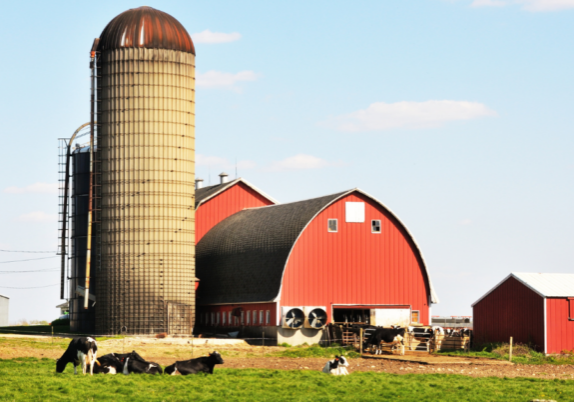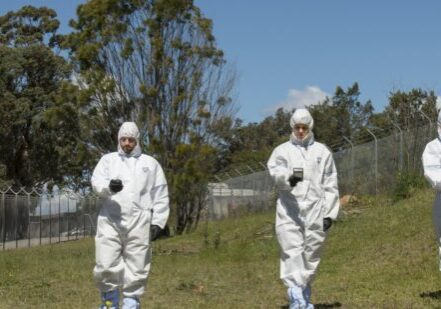NFU-O Response to Regulating Commercial-Scale Geologic Carbon Storage Projects in Ontario

Re: ERO 019-8767 Regulating Commercial-Scale Geologic Carbon Storage Projects in Ontario
Dear Ministry,
We are writing to express concern over ERO proposal 019-8469 to explore a regulatory framework to enable commercial for-profit geologic carbon storage (GCS). As farmers who care deeply about soil and water health and who worry about the impacts these projects will have over our surface rights and long-term ability to grow food for Ontarians, we question the very idea that commercial-scale GCS can be adequately regulated and disagree with the analysis that such enterprises will have “neutral to positive environmental, social and economic consequences”.
The NFU-O is an accredited farm organization representing thousands of sustainable farmers in Ontario and has advocated for farmers across Ontario and Canada since 1969. NFU-O members work together to achieve agricultural policies that ensure dignity and income security for farmers, while protecting and enhancing rural environments for current and future generations. NFU-O policy calls on all levels of government to ensure that development is undertaken in a balanced and responsible manner that protects prime agricultural land and ecologically sensitive areas for the future.
A 50-year-old technology, GCS has always been closely aligned with the oil and gas industry; they have actually been a boon to fossil fuel companies who wish to profit off the continuation of fossil fuel use, not its replacement or eradication. In fact, GCS is most commonly injected into oil fields to help fossil fuel companies extract more oil and gas out of the ground – in other words, GCS is a byproduct of the industry, not a green solution. GCS does not “support the transition to a low carbon economy” but rather the opposite; it creates an illusory “greening” of the very industry that is responsible for global warming. The Institute for Energy Economics and Financial Analysis (IEEFA) is emphatic that GCS “is not a climate solution.”
It’s also costly to taxpayers. Since 2009, in the U.S., upwards of $2.4 billion dollars of taxpayers dollars helped to fund 11 commercial GCS demonstration projects, by 2022, only two of these facilities remained operational and fossil fuel companies were the only ones to benefit from these boondoggles. In the IEEFA review of 13 international GCS operations, two failed, one was suspended, and most of the others underperformed and did not live up to their promise.
The IEEFA researchers also found that “leakages and fugitive emissions in the long term are serious risks; the California Aliso Canyon gas leak in 2015 was the “worst man-made greenhouse gas disaster in U.S. history” after 97,000MT of methane was released into the atmosphere. No amount of regulation can adequately mitigate against such a disaster, and as the Intergovernmental Panel on Climate Change put it, no carbon storage setup is “necessarily permanent.” Carbon storage only delays the climate consequences of our fossil fuel dependency.
The NFU-O also has serious concerns that storage failure could contaminate freshwater and aquatic ecosystems. Very little research has been conducted on the non-atmospheric risks of GCS. Any leak could have disastrous consequences for aquatic life and for the clean water needed for agricultural operations. The Ministry says that regulations would require an assessment to the impacts of GCS on agricultural systems, and that if “avoidance is not possible” it should be “minimized and mitigated.” This is simply insufficient protection for Ontario’s already threatened natural resources and farmland.
Rather than spend taxpayers’ dollars on developing regulatory and monitoring standards for a widely-discredited practice, why not support proven climate change mitigation strategies, including ones that fund carbon storage in forests, wetlands, and in sustainable and regenerative agricultural practices? A better use of taxpayers’ dollars could include providing per acre funding to farmers who are managing their lands in a way that captures and stores carbon, and increasing support through programs like the Resilient Agriculture Landscape Program for farmers interested in making their agricultural lands more productive and resilient. And why not finance real transitions away from the province’s reliance on fossil fuels, by building public transit systems and incentivizing solar, wind, and other renewable energies in locations that will not negatively impact farmland and agricultural production?
Even with regulatory standards, encouraging a for-profit GCS industry is likely to find various oil and gas actors fighting for “pore space”; in the United States this has led to disputes and challenges for farmers exercising their surface property rights. The NFU-O is opposed to Ontario following Alberta’s example and declaring ownership and jurisdiction over deep pore space as this has a potential of usurping farmer property rights and threatening our livelihoods. We are already losing farmland in this province at a staggering 319 acres every day, we don’t need fossil companies clambering to get under the soil farmers need to grow Ontario’s food.
Finally, the assertion that a GCS will act as a major job creator is unproven and is an imaginative stretch. Again, investment in truly green technologies and a just transition will create more viable and long-lasting jobs; jobs that can have a real impact on carbon mitigation. Any economic stimulus related to GCS projects is not worth the environmental risk.
We don’t need more research on GCS. Regulating an industry of dubious merit seems neither safe nor fiscally-responsible. The evidence is clear: there are other more viable and natural means to store carbon and transition away from our unsustainable oil and gas consumption.
We still have an opportunity to avoid a costly and unproductive mistake; let’s not gift oil and gas companies the chance to greenwash the industry at the expense of Ontario’s citizens, farmers, and natural environment.
Sincerely,
Max Hansgen
President, National Farmers Union – Ontario








